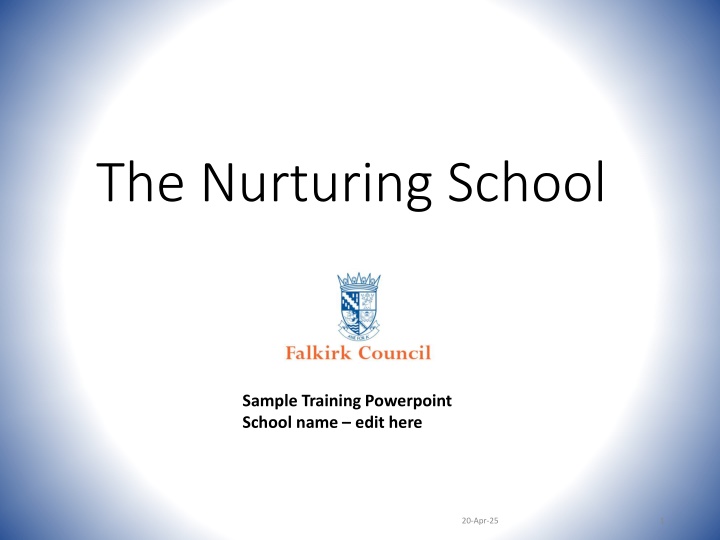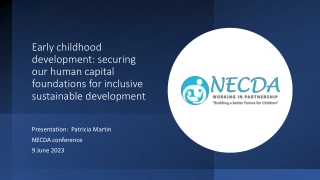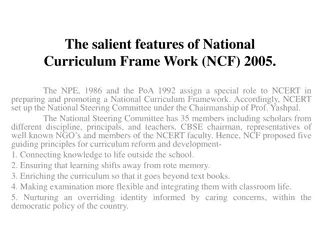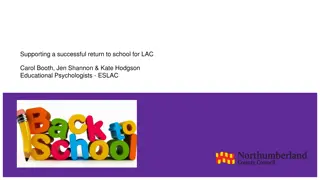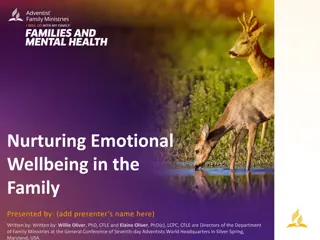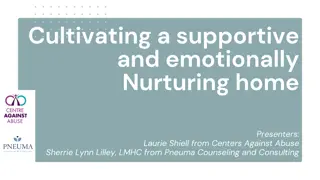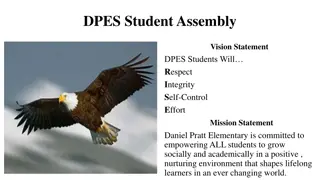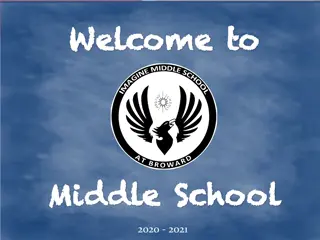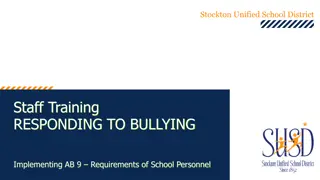Exploring Nurturing School Practices: Training Overview
Delve into the core aspects of Nurturing Schools, including training for staff, setting expectations, and understanding the role of Nurturing School working groups. Discover the theory behind nurture principles, communication strategies, and the characteristics of a Nurturing School. Gain insights into the history of Nurturing Schools, current research on effectiveness, and the impact of theoretical frameworks like Attachment Theory. Explore the meaning of a Nurturing School through the lens of resilience and human needs.
Download Presentation

Please find below an Image/Link to download the presentation.
The content on the website is provided AS IS for your information and personal use only. It may not be sold, licensed, or shared on other websites without obtaining consent from the author.If you encounter any issues during the download, it is possible that the publisher has removed the file from their server.
You are allowed to download the files provided on this website for personal or commercial use, subject to the condition that they are used lawfully. All files are the property of their respective owners.
The content on the website is provided AS IS for your information and personal use only. It may not be sold, licensed, or shared on other websites without obtaining consent from the author.
E N D
Presentation Transcript
The Nurturing School Sample Training Powerpoint School name edit here 20-Apr-25 1
Overview suggestions Explanation about the Nurturing Schools project Discussion around the training core staff group members have received Explanation of the role of the Nurturing School working group Explanation of expectations of all staff Discussion around establishment improvement plan, aim for the school and how this fits in with local authority priorities Discussion by SMT about expectations for all staff in the school 20-Apr-25 Falkirk Council Educational Psychology Service 2
Learning intentions for session (suggestions for areas that could be covered) Discuss Nurture in your own individual context What is Nurture? Attachment theory/theoretical underpinnings The Nurture Principles Nurturing communication (verbal and non verbal) Behaviour as communication Transitions The role of school staff in a Nurturing School Supporting each other as a staff team (emotional containment) What does a Nurturing School look like? Needs analysis for your context How the project will be taken forwards in the school roles and responsibilities. Feedback, evaluation and dissemination methodology discussed. Suggested reading/individual CPD for staff 20-Apr-25 Falkirk Council Educational Psychology Service 3
What is Nurture? Discuss context of Nurture Where has Nurture come from, when did Nurture groups start and why, how have things progressed since then? Impact and discussion of current research evidencing Nurturing Schools/establishments effectiveness 20-Apr-25 Falkirk Council Educational Psychology Service 4
What does a Nurturing School mean? Review of theoretical underpinnings e.g. Attachment theory Maslow s hierarchy of need Resilience Anything else you think is relevant/useful 20-Apr-25 Falkirk Council Educational Psychology Service 5
e.g. Attachment is An unthinking confidence in the unfailing accessibility and support of attachment figures is the bedrock on which stable and self reliant personality is built. Bowlby (1973)
The Six Nurturing Principles Children s learning is understood developmentally The classroom offers a safe base The importance of nurture for the development of self-esteem The importance of transition in children s lives Language as a vital means of communication All behaviour is a communication 20-Apr-25 Falkirk Council Educational Psychology Service 7
Nurturing Communication Discuss importance of communication in the school Review verbal and non-verbal communication Provide collated examples from your training pack 20-Apr-25 Falkirk Council Educational Psychology Service 8
Behaviour as communication Discussion of different behaviours seen in your context Discuss what some of these behaviours may mean from the training you have received why do they occur Discussion around strategies - how to support and manage some of these behaviours in your context 20-Apr-25 Falkirk Council Educational Psychology Service 9
Transitions Review the transitions audit you discussed during Nurture training What do we mean by transitions? What makes transitions difficult for children? What things help children when they are transitioning? How can a Nurturing school support this? 20-Apr-25 Falkirk Council Educational Psychology Service 10
The role of staff in a Nurturing school Reflection/evidence about why you are important! E.g. Discussion of the key person role A significant factor emerging from the life histories of competent children from disadvantaged families appears to be the presence in the environment of a charismatic, inspirational person. He/she may be a playmate s parent, an older friend, a teacher, a member of the clergy, a physician anyone who can help a child acquire self assurance and a vision of what can be achieved. (Segal 1981) The paradox is that people need to have a satisfying experience of dependency before they can become truly independent and self-regulating. Yet this feels counter- intuitive to many adults, who respond to the insecure with a punitive attitude, as if becoming more mature and self-regulating were a matter of will-power . (Gerhardt, 2004) 20-Apr-25 Falkirk Council Educational Psychology Service 11
Supporting each other as a staff team Emotional containment and why this is important Examples of how this is done How could this work in your context? 20-Apr-25 Falkirk Council Educational Psychology Service 12
What Does A Nurturing School Promoting Positive Attachments Look Like? (Provide examples e.g.) Nooks Good relationships with parents Supportive peer relationships Key adults Containment and touch Support for self-regulation 20-Apr-25 Falkirk Council Educational Psychology Service 13
A Place To Eat And Share 20-Apr-25 Falkirk Council Educational Psychology Service 15
A Comfy Space 20-Apr-25 Falkirk Council Educational Psychology Service 16
A Homely Place 20-Apr-25 Falkirk Council Educational Psychology Service 17
Our needs met in a comforting way 20-Apr-25 Falkirk Council Educational Psychology Service 18
A Happy Face 20-Apr-25 Falkirk Council Educational Psychology Service 19
A Nurturing school the focus Ensuring all staff understand the implications of attachment theory and stress on children Increasing the knowledge of support staff who are working with children with trauma Allowing time in the day for relationship building Developing alternative non behaviourist ways of relating to troubled pupils and providing them alternative strategies Ensuring staff feel cared for so their care-giving capacities are maximised 20-Apr-25 Falkirk Council Educational Psychology Service 20
Whole School Examples please discuss examples and adapt relevant examples to your context Playground Food Pupil participation Parents Transition times Celebrations 21 Falkirk Council Educational Psychology Service 20-Apr-25
Needs analysis for your context What features have you identified that show you are already a Nurturing School? What could you do to improve? Are there any particular areas you could work on? Who/what help do you need to do this? 20-Apr-25 Falkirk Council Educational Psychology Service 22
Next steps. This is up to you but you could facilitate a discussion about the action plan and staff/establishment aims Explanation about Nurturing School accreditation/self-evaluation? 20-Apr-25 Falkirk Council Educational Psychology Service 23
Suggested reading (and references) Examples Theraplay (Booth & Jernberg 2010) Settling to learn (Bomber & Hughes, 2013) Inside I m Hurting: Practical Strategies for Supporting Children with Attachment Difficulties in Schools. Louise M. Bomber (2007). Worth Publishers A Short Introduction to Attachment and Attachment Disorder. Colby Pearce (2009). JK Publishers Attachment and Teaching Styles. Philip Riley Attachment-focused Parenting: Effective Strategies to Care for Children (2009). Dan Hughes. Norton 20-Apr-25 Falkirk Council Educational Psychology Service 24
